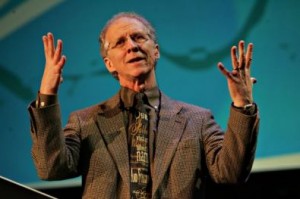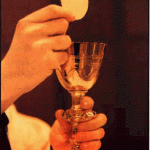Dr. James White writes, “The Qur’an denies, that Jesus the Messiah was crucified. By denying this historical reality, the Qur’an forces its followers to not only reject one of the most certain events of history itself, but by so doing it separates them from the life-giving message of the cross of Jesus Christ.
In this video we compare the 40 Arabic words of Surah 4:157 with the 33 Greek words of Galatians 2:20. Here are the texts (as translated by the co-author of the lyrics, James White):
Surah 4:157: And in reference to the Jews who said, “We killed the Messiah, Jesus the Son of Mariam, the apostle of God,” they did not kill him, nor did they crucify him, but it was made to appear to them. And indeed those who differ in the matter are surely in doubt about it. They have no knowledge about it except following mere assumption. But of a certainty they did not kill him.
Galatians 2:20: I have been crucified together with the Messiah. So it is no longer I who live, but the Messiah living in me. And this fleshy life I now live, I live by faith in the Son of God, the one who loved me and gave himself in my place.
It is our sincere hope that Muslims will know we present this with true love in our hearts for them, and in the hope that they will see their need for Christ’s work, and will submit in repentance and faith to His lordship.”
 The following is a short article by Dr. John Piper entitled, “Being Mocked: The Essence of Christ’s Work, Not Mohammed’s.”
The following is a short article by Dr. John Piper entitled, “Being Mocked: The Essence of Christ’s Work, Not Mohammed’s.”
What we saw in the Islamic demonstrations over the Danish cartoons of Muhammad was another vivid depiction of the difference between Muhammad and Christ, and what it means to follow each. Not all Muslims approve the violence. But a deep lesson remains: The work of Muhammad is based on being honored and the work of Christ is based on being insulted. This produces two very different reactions to mockery.
If Christ had not been insulted, there would be no salvation. This was his saving work: to be insulted and die to rescue sinners from the wrath of God. Already in the Psalms the path of mockery was promised: “All who see me mock me; they make mouths at me; they wag their heads” (Psalm 22:7). “He was despised and rejected by men . . . as one from whom men hide their faces . . . and we esteemed him not” (Isaiah 53:3).
When it actually happened it was worse than expected. “They stripped him and put a scarlet robe on him, and twisting together a crown of thorns, they put it on his head. . . . And kneeling before him, they mocked him, saying, ‘Hail, King of the Jews!’ And they spit on him” (Matthew 27:28-30). His response to all this was patient endurance. This was the work he came to do. “Like a lamb that is led to the slaughter, and like a sheep that before its shearers is silent, so he opened not his mouth” (Isaiah 53:7).
This was not true of Muhammad. And Muslims do not believe it is true of Jesus. Most Muslims have been taught that Jesus was not crucified. One Sunni Muslim writes, “Muslims believe that Allah saved the Messiah from the ignominy of crucifixion.”1[1] Another adds, “We honor [Jesus] more than you [Christians] do… We refuse to believe that God would permit him to suffer death on the cross.”2[2] An essential Muslim impulse is to avoid the “ignominy” of the cross.
Continue reading

 “As the salt flavors every drop in the Atlantic, so does sin affect every atom of our nature. It is so sadly there, so abundantly there, that if you cannot detect it, you are deceived.”
“As the salt flavors every drop in the Atlantic, so does sin affect every atom of our nature. It is so sadly there, so abundantly there, that if you cannot detect it, you are deceived.” Influential blogger Justin Taylor posted an article, quoting Chris Castaldo’s “Three Misnomers to Avoid” concerning what the Roman Catholic Church teaches concerning the Mass. Rather than bringing clarity, I believe the article is very unhelpful and confusing.
Influential blogger Justin Taylor posted an article, quoting Chris Castaldo’s “Three Misnomers to Avoid” concerning what the Roman Catholic Church teaches concerning the Mass. Rather than bringing clarity, I believe the article is very unhelpful and confusing.